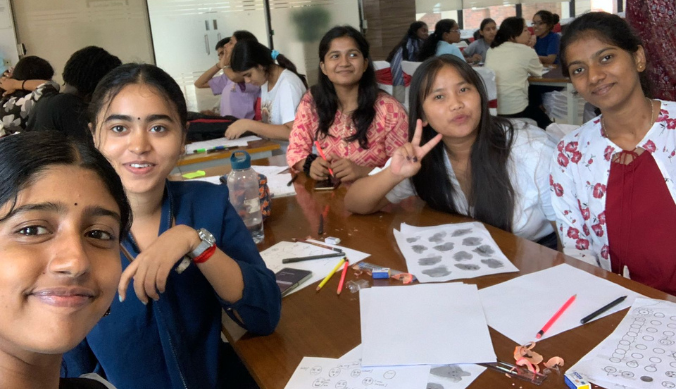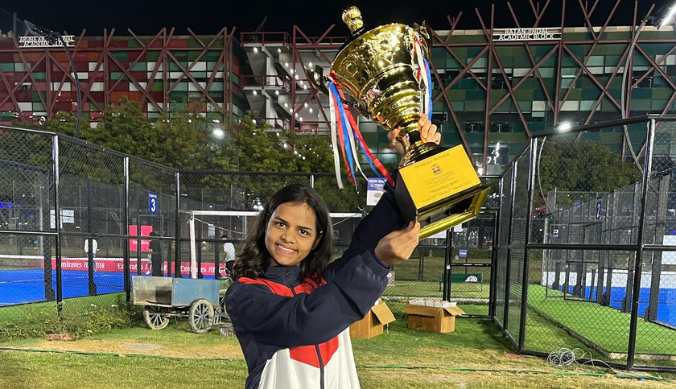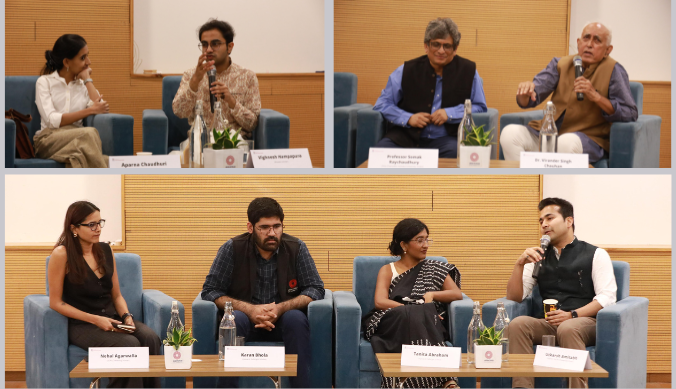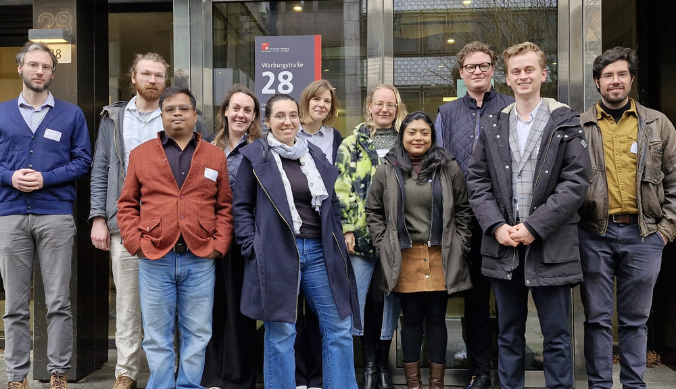Curiosity Leads the Way: The Young Scientists of the Lodha Genius Programme
Everywhere we look, the fruits of science are around us. Science gives us the tools to fulfil our innate curiosity and explore our surroundings. However, young researchers and students seldom get a chance to experience this process of science and discovery. Science is messy, filled with tinkering and being lost in the unknown. Taking leaps of faith to try things leads to a fall flat on our face (figuratively speaking). In this chaos, once in a while, we crack the mysteries of nature—to give an insight that changes everything we know. That is how science grows at the frontier.
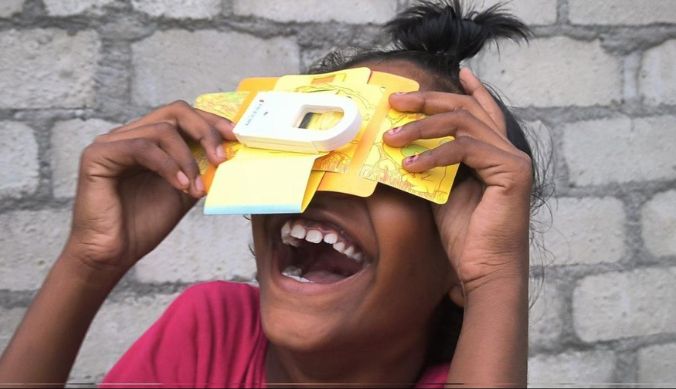
But in classrooms around the world, very few students will ever directly experience this process first-hand. I believe the Lodha Genius programme is trying to bring this process of science to students across India.
Growing up in India in the 90’s, I did not know what a career in science looked like. I was happily playing in muddy puddles and broken-down and discarded laboratory equipment. I purposefully call this play since science is nothing more than play—a creative process to find your way through. You get to write the rules. In this process, I learned to understand the power of observation. Observe the world with an acute eye – looking for paradoxes and puzzles—puzzles I could spend a lifetime trying to solve. Somewhere along the way, I found my way into research institutions and met other curious individuals who nurtured this curiosity. Long before I knew it, I was a scientist supported by our society to explore the unknown.
But these trajectories are rare and few. Most students with all the talent to be incredible explorers and scientists never get a start. And that is where the Lodha Genius Programme steps in. I am not a fan of the word “genius” since it isolates an individual singularly. I would much rather refer to participants as explorers, but that is a story for another day.
This last year, I had the opportunity to spend three intense days with students across the country on the lush green campus at Ashoka University. After a red-eye flight, early morning, I found myself with 100 students in nearby fields of the Ashoka campus in a pristine rural setting. I had requested students to gather in these surroundings for a simple lesson. Science is all around us, but we must first learn to spot the unknown and sharpen our observation skills. We looked in puddles and wells, from trees to plants and everything in the middle. Hours went by. I saw 100 students transformed into explorers. That was because they were free to explore and ask questions without being judged by a fixed framework. Emersion into your subject matter is what naturalists and philosophers have used for centuries. I saw these students transform into explorers with just pencils and notepads.
It was then time to bring samples (and questions) back into the lab, where we spent time looking at what we found. The students covered the whiteboards of the classroom as a “discovery wall” drawing and describing what they observed. It ranged widely from plants and insects to foliage that no one could describe. Along the way, we decided to build microscopes (Foldscope, an origami microscope) that allowed everyone to be a microbiologist and go deeper into the subject matter of choice. Tools of science are a powerful engine of exploration, and I was thrilled that every student had their own Foldscope to explore the microcosmos. You see, science often happens when no one else is watching. Whether it is late at night or early in the morning, when you have an idea, you just want to check if it is true. That rush to look with whatever tool you have determines if you can find something new. In those eyes across the room, I saw curious students transformed into scientists—asking questions to each other and not caring for a minute if what they were exploring was in the syllabus.
I spent the next few days with the students—in the classroom, canteen or football pitch. Questions poured in. Every minute, students bombarded me with queries, ideas and questions about our world and how to explore it. We talked about journeys to the Arctic and the Andaman. I could see a transformation in the eyes of these young explorers. Every one of them had a curiosity they wanted to pursue.
I know and understand the pressure of exams and the stiff competition that every one of these students faces. I was one of them. But I also know that to excel as a scientist, what is valuable to preserve is a sense of curiosity and a spirit to explore the unknown. Only at that moment will we be able to nurture the next Ramanujans of our country. In whatever form we can, we must support the curiosity of young people to be able to transform the fate of our nation.
(Written by Manu Prakash, Associate Professor of Bioengineering, Stanford University and 2023 Faculty at Lodha Genius Programme, Ashoka University)
Study at Ashoka










